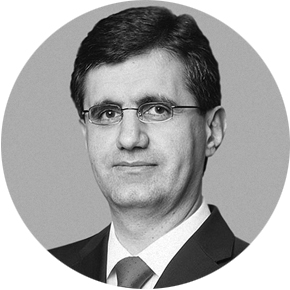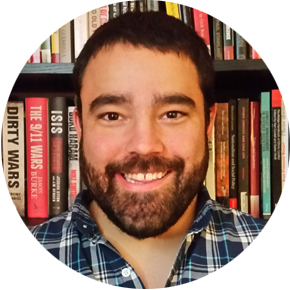On the threshold of the Armenian Genocide Centennial, Mediamax has started a series of interviews with the intellectuals of Armenia and the Diaspora. It is an attempt to collect various opinions as to whether the Armenian Genocide Centennial will serve a certain “New Beginning” for Armenians or not.
Our today’s interlocutor is VivaCell-MTS General Manager Ralph Yirikian.
-The topic of Genocide is thought to be the main factor uniting Armenians in the Diaspora. Is it really so?
-This factor was really powerful during my adolescence. It was especially apparent at schools – various events dedicated to the Genocide were frequently organized.
Over the years, the number of Armenian schools decreased and this mighty educational tool started to gradually loosen and today it does not have the influence it once had. Presently, the influences of other cultural values and forms on the Diaspora Armenians are gradually increasing, and it is especially observed among the younger generation.
On the other hand, I believe we shouldn’t impart dramatic effect to the Armenian Genocide Centennial. On the contrary, this “haven” should remind our people that we were victorious, and the main aim of the Genocide – the extermination of the Armenian nation – failed, and 100 years later we are alive and we have our independent statehood.
This should be a subject of pride. It’s where we should continue to carve out our future from. Indeed, there is almost no Armenian family that hasn’t lost relatives because of the Armenian Genocide, but we tend to forget that we had losses not only in the early 20th century. We are being oblivious of the massacres in Shushi and Adana, the collapse of the Rubenid dynasty and the fall of the Armenian Kingdom of Cilicia. We are forgetting about the measures taken against the intellectuals and people during the Soviet era – exile, imprisonment and execution. And despite all bitter pages of our history, we do exist and it’s a victory – it’s an excellent and inspiring idea.
-Do you think the Centennial might become a symbolic occasion to breathe a new meaning into Armenia-Diaspora relations? What’s wrong in them today?
-To put it shortly, the main issue refers to the character of Armenians. Irrespective of where we are – in Armenia or in the Diaspora – we think we know everything. Unfortunately, this factor acts against our nation.
We should have a vision for a future around which all Armenians around the world will unite.
There is loss of trust: neither Armenia fully trusts the Diaspora, nor the Diaspora fully trusts Armenia. The great difference in the mindset and approaches to the mode of life and the economic sector are one of the reasons for it. We are trying to prove each other who is the smartest. The mentioned character does not let Armenians in Armenia, Artsakh and the Diaspora blend those differences in order to form a “rich mixture.”
We should abandon the “I know everything” way of thinking and carry on a dialog, share our practice and try to instill confidence in one another. In reality, it does not require strenuous efforts. Unfortunately, there are many external and influential forces, which do not want to see Armenians strong, powerful and consolidated. Our current way of thinking is naturally facilitating their task.
We should discuss and reach certain solutions. We should map out a strategy and understand where we stand today as a nation and where we want to see us 50 years down the road. We should have a vision for a future around which all Armenians around the world will unite.
-How can it be done in institutional terms? Who should launch discussions on that vision?
-Today we have a state, and it’s the state that should assume the initiator’s role. People are temporary, while the statehood is a lasting value. If the Diaspora does not trust the state for some reasons, then the state can set up a group of intellectuals comprised of respected people in Armenia, Artsakh and the Diaspora, which will hold regular meeting and work out approaches.
We should neither forget that the mindset of people born and grown up in Armenia, especially that of the representatives of the older generation, is affected by the Soviet era.
We can have various commissions that will hold discussions related to various sectors which in their turn, will also contribute to the formation of the vision of the future. We should clearly know where we are heading to.
The Diaspora has a rich experience of western-style governance. It’s a totally different mindset and a different school, which varies from the mindset of Artsakh War heroes. Owing to those heroes, we were victorious and proved that we are a triumphant nation. We should neither forget that the mindset of people born and grown up in Armenia, especially that of the representatives of the older generation, is affected by the Soviet era. Both parties sometimes find it hard to comprehend each other since they have varying views on life, different practices and paths. It’s where the problem lies.
But there is a young wave in Armenia, Arsakh and the Diaspora. They should be granted an opportunity to act. We respect the elderly but they have to realize that their time has passed. Their advice is very important, and their bitter life experience is too valuable but I think it’s time that they let the young also be useful for the nation. By young I mean those aged 30s-40s today.
- Let’s talk about the 50-year vision. How do you picture Armenia 50 year later?
If we want to reach somewhere we should take bold decisions. It might be painful but it needs to be done.
-The developed world is not better than us. We have every possibility but we lack the will to make decisions. We always worry about what will follow after we pass a certain decision. We cannot develop when we think of taking a step forward while keeping in mind the possibility of going ten steps backwards. If we want to reach somewhere we should take bold decisions. It might be painful but it needs to be done.
In the age of global changes and globalization we should be flexible instead of saying “our grandfathers acted in this way and we should continue in the same way.” The history of our grandfathers will remain in our archives and we will recall them, their merits and practice with respect, but the present and the future demand new qualities – flexibility, tolerance and sober judgement. It’s what we should build our vision on.
The lack of optimism is a huge issue. When attending a certain event today, an event where I meet, say, 100 Armenians, I see only one or two smiling… We cannot go on in this way. We should not break down, but be optimistic about the future. There are very smart and prepared boys and girls in Armenia. There are talented Armenians in the U.S., Great Britain, France, Middle East, Far East and Australia and the state is aware of them. Thus, we should not fear. We should come together and hold a discussion on where we will be 50 years down the road.
Ara Tadevosyan talked to Ralph Yirikian



























Comments
Dear visitors, You can place your opinion on the material using your Facebook account. Please, be polite and follow our simple rules: you are not allowed to make off - topic comments, place advertisements, use abusive and filthy language. The editorial staff reserves the right to moderate and delete comments in case of breach of the rules.